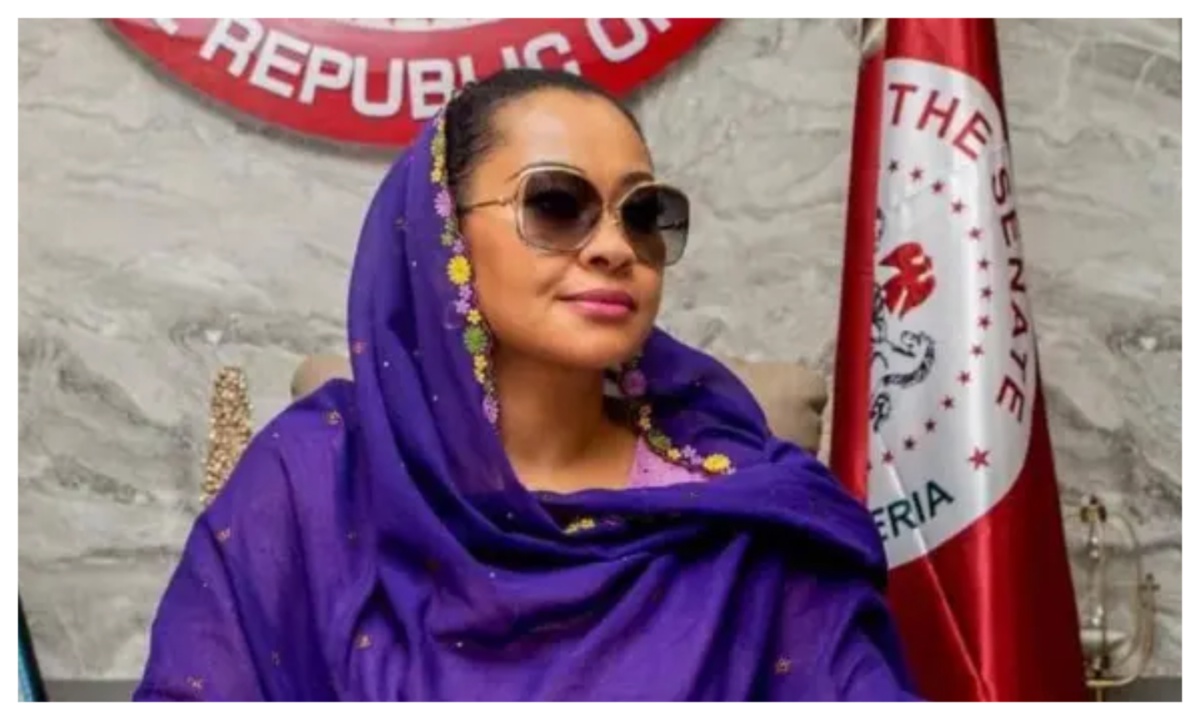Now Reading: Natasha Akpoti-Uduaghan Returns to Senate After Six-Month Suspension, Declares ‘No Apology’
-
01
Natasha Akpoti-Uduaghan Returns to Senate After Six-Month Suspension, Declares ‘No Apology’
Natasha Akpoti-Uduaghan Returns to Senate After Six-Month Suspension, Declares ‘No Apology’

Senator Natasha Akpoti-Uduaghan has staged a dramatic comeback to the National Assembly after a turbulent six-month suspension, insisting she owes no apology to the Senate leadership.
Her return became official on Tuesday when security operatives, led by the Deputy Director of the Sergeant-at-Arms, Alabi Adedeji, unsealed her office in Suite 2.05 of the Senate Wing. The Kogi Central lawmaker, flanked by jubilant supporters, described the moment as a victory over injustice.
Akpoti-Uduaghan was suspended on March 6 following a heated row over sitting arrangements, but the controversy quickly escalated after she accused Senate President Godswill Akpabio of sexual harassment — allegations he has repeatedly denied.
Speaking defiantly on her first day back, the senator said:
“We survived the recall, the blackmail, and all attempts to silence me. No one is more Nigerian than us. Senator Akpabio is not the governor of this place, yet he treated me as a servant in his house. That is unacceptable.”
Atiku: ‘Triumph Over Tyranny’
Former Vice President Atiku Abubakar hailed her reinstatement as a victory against political intimidation. He warned that Akpoti-Uduaghan’s ordeal reflected a broader pattern of democratic suppression under President Bola Tinubu’s administration.
“At every turn, we must resist authoritarianism and defend the sovereignty of the people’s mandate,” Atiku posted on X.
Aisha Yesufu: ‘Senate Allowed Itself to Be Used’
Activist Aisha Yesufu accused the upper chamber of being complicit, urging lawmakers to reclaim their independence.
Analysts Urge Caution
While many Nigerians view her return as a symbol of resilience, analysts warn that Akpoti-Uduaghan faces a delicate balancing act.
Public affairs scholar Dr Nduka Odo noted:
“Her outspokenness gives her goodwill, but it also puts a target on her back. Unless she plays a smarter game, her colleagues may try to frame her or frustrate her re-election bid in 2027.”
Legal experts also stressed that while reinstating her was constitutionally correct, the senator must carefully abide by chamber rules to avoid a repeat clash.
For now, Natasha’s fiery comeback has reignited debates on gender, power, and accountability in Nigeria’s 10th Senate — and signalled that her political fight is far from over.




